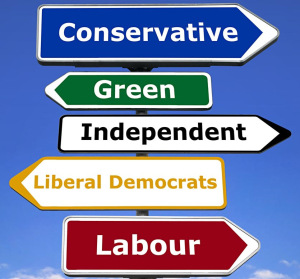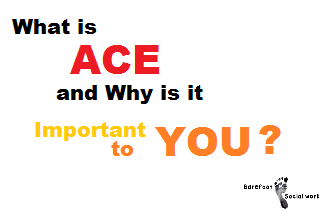|
Whitney was right in 1985 when she sang “the children are our future” but does the government believe this only applies if you’re from a certain background? I recently read an article by Dr. Charles Lewis where he asks if the US is witnessing a new wave of social Darwinism. Perhaps the UK should also reflect upon this question. What kind of future will the most vulnerable children in our society have unless we invest in them and their families both financially and emotionally?
The shock result in the UK general election was a wakeup call and we need to re-examine how social issues are discussed within the media if they are to be seen as relevant to the electorate. Labour are reportedly “soul searching” whilst the Liberal Democrats have launched a “fightback” but we should all be engaged in the debate. Many people believe that the core tenet of democratic voting is that we should vote for those that best represent our personal interests; however, we should all have a vested interest in the welfare of those living in poverty and with adversity, and we know that the socially excluded are less likely to vote and have their interests represented.
In my post on the 11 May 2015 I described how poverty is considered to be the best predictor of mental health disorders because it is a predictor of all the other things that are causal. I explained how adverse childhood experiences (ACE), many of which are compounded by poverty, are strongly related to adverse behavioural, health and social outcomes; creating a cyclic effect where those with higher ACE counts have higher risks of exposing their own children to ACEs.
These childhood experiences place a huge burden on the NHS, social care and judicial system. Surely it is plain to see that investing in services earlier will not only improve the life chances of the most vulnerable children in our society, but it will also alleviate some of the pressure on other services. The government needs to invest in an infrastructure that can be preventative as well as reactive. We would all benefit from it. If we are concerned about crime, we might want to look at the causes of crime. Childhood adversity is associated with adult criminality and it has been recommended in a 2013 study that to decrease criminal recidivism, treatment interventions must focus on the effects of early life experiences. Indeed, a UK ACE study found that preventing ACEs in future generations could reduce levels of violence victimisation by 51%, violence perpetration by 52% and incarceration by 53%. If we are concerned about the NHS, we might want to look at the causes of the negative health outcomes that place a burden on its service. Previous studies have found that there is a dose-response relationship between adverse childhood experiences and health outcomes. For a person with an ACE score of four or more, the relative risk of chronic obstructive pulmonary disease was around two and a half times that of someone with an ACE score of zero. For hepatitis, it was also two and a half time times. A person with an ACE score of seven or more had triple the lifetime risk of lung cancer and three and a half times the risk of ischemic heart disease. In 2014 a Bulletin of the World Health Organization described how people in the UK with at least four adverse childhood experiences were at significantly increased risk of many health-harming behaviours. They said modelling indicated that prevention of adverse childhood experiences would substantially reduce the occurrence of many health-harming behaviours. But that's not all... they also found that preventing ACEs in future generations could reduce levels of early sex (under 16 years) by 33%, unintended teen pregnancy by 38%, smoking by 16%, cannabis use by 33%, heroin/crack use by 59% and poor diet by 14%. Until we see political and social reform Social Workers can help the vulnerable groups they support by working in preventative ways, rather than concentrating solely on crisis intervention; act as advocates for people that encounter injustices; empower people to become involved in decisions that affect them; challenge oppressive working practices; and most importantly, advocate for political and social change. It is important for social workers to engage in the current debate about how to prevent harmful childhood adversity and challenge structural inequalities that compound them. If you would like to learn more, I've added some recommended books at the end of this post. You should also take a look at this video of Mark Bellis at the World Health Organisation:
0 Comments
Political Rhetoric: Is Social Work on the political agenda in the run up to the general election?17/4/2015  Community Care reported on Wednesday that UKIP would seek wholesale reform of Britain's "clearly failing" child protection services, if elected. If I may overlook the fact that this is from UKIP for a second; if this policy was coming from any of the political parties I would be very interested in hearing more. Highly skilled and able practitioners are working in a very challenging environment with many systematic failures. If any party was to take an open and unbiased review of child protection services I would be very pleased because they would see what many of us have known for years. However, I am rather sceptical about any of their motives. In my experience politicians are too quick to scapegoat practitioners rather than look at the impossible system within which they are expected to practice safely and invest the necessary capital; because that is what is needed - INVESTMENT. When politicians refer to Child Protection Services what they are actually talking about is Children's Social Care. The problem with this choice of rhetoric is that it leads the majority of voters to believe it is not a service that they will ever need and therefore, whilst they may be interested and concerned, they would not prioritise spending in this area. This is a false dichotomy. Children's Social Care encompassed a whole host of services for a diverse demographic of children and young people. We are not just talking about front-line Social Workers but also the preventative services that are bearing the brunt of cuts; support and care for looked after children; services and respite for families of children with additional needs. Social Workers do not only work with 'troubled families' but also families experiencing crisis whatever their background. Leading the often complicated array of professionals and services are Social Workers. It is when Social Workers are overstretched and unable to do the job they love that the system falls apart and children are put at risk. Serious Case Reviews often cite poor multi-agency working - Social Workers, when sufficiently resourced, are the glue that holds it all together and should be valued for the job they do. I have worked with an incredibly mixed demographic of clients in my time. Some would have fitted the governments definition of a 'troubled family' others would not. My role has involved safeguarding children from physical, sexual, and emotional harm. It has also included working with parents who need support and assistance as a result of redundancy, homelessness, illness and disability. One family in particular springs to mind as I write this; they were a young professional family who had fallen on hard times as a result of redundancy. Dad had lost his job and, as result of the economic downturn, was finding it difficult to bridge the gap. He was extremely conscientious, hard working and proud. He found it very difficult asking for help but when he was unable to pay the rent and they lost their home, without any extended family to offer assistance, he turned to Children's Services to help him, his wife and their two young daughters. It was only a month until he found employment again but I am sure he would say that we offered him a much needed lifeline. This was not his fault and I am sure a year or two earlier he would not have envisaged a time when he and his family would have ever needed the help of a Social Worker. This is my point: you never know when you will fall on hard times; this is why Social Care should be on the political agenda; and why voters should be interested in what party manifestos have to say about it. So, lets take a look at what the main parties have to say in their manifesto's. Labour would avoid "extreme" social care cuts and continue to fund the Frontline fast track training scheme for Children's Social Work according to their manifesto. They would also:
The Conservatives would create regional adoption agencies that work across local authority boundaries, the party manifesto has pledged. "Far-reaching powers" over social care would also be devolved to large cities that opt to having an elected mayor, like Greater Manchester. Their party manifesto also said they would:
The Liberal Democrats have pledged to "radically transform mental health services" if they are elected to government. Their manifesto states that a Liberal Democrat government would build on the work of the coalition to establish parity between physical and mental health services. They also say they would:
The Greens have pledged free social care and health care for all older people at a cost of "around £8bn a year" and an end to "failed" austerity. Their manifesto also promises:
As mentioned earlier, UKIP would seek wholesale reform of the "clearly failing" child protection services in Britain, if it were to win the next general election. They would hold an open review of all childcare and child protection services, with a view to reforming the system. The cited concerns over "misplaced sensitivity to issues of race and religion", "forced adoptions" and professionals "letting serious cases of abuse and maltreatment slip through the net". In their manifesto UKIP said that they would:
The Greens win for me but as we don't have a visible candidate in my area this is a mute point. What party impresses you the most? Why? I hope that the next government values Children's Social Care enough to invest in it. I hope that they realise it is not only a bad workman that blames his tools. It is impossible for Social Workers to produce good outcomes 100% of the time when they have sky high caseloads and dwindling preventative services. |
AuthorI'm a Qualified Children's Social Worker with a passion for safeguarding and family support in the UK. Archives
August 2016
Categories
All
|



